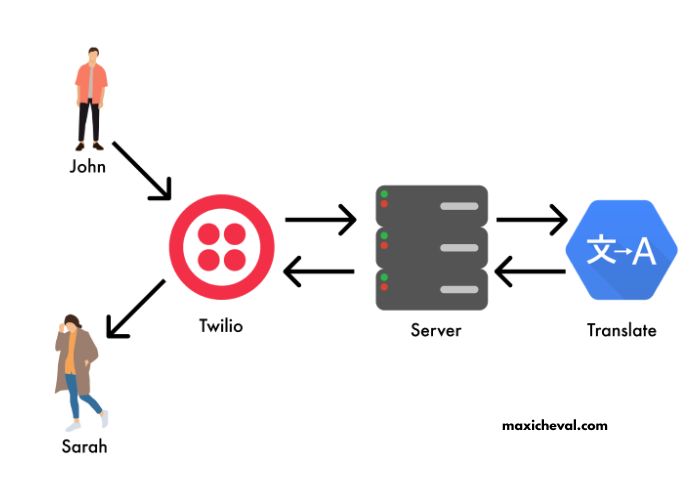Innovation has always been the driving force behind human progress. From the invention of the wheel to the internet revolution, each era has witnessed the emergence of transformative technologies that have reshaped the way we live, work, and interact. As we stand on the cusp of a new decade, the pace of technological advancement shows no signs of slowing down. In this article, we will explore the most significant technological trends that are shaping the future of innovation and discuss how individuals, businesses, and societies can navigate this ever-evolving landscape.
Artificial Intelligence (AI) and Machine Learning
Artificial Intelligence and Machine Learning are not new concepts, but their impact is deepening and expanding. AI is now integrated into numerous aspects of our daily lives, from virtual assistants like Siri and Alexa to recommendation algorithms that personalize our online experiences.
Automation and Efficiency
One of the most significant impacts of AI and Machine Learning is automation. Tasks that were once time-consuming and repetitive can now be handled by machines. This has the potential to increase efficiency across various industries, from manufacturing to customer service. For businesses, embracing AI-driven automation can lead to cost savings and increased productivity.
Personalization
AI is also driving personalization in a multitude of fields. In marketing, for instance, AI algorithms analyze user behavior and preferences to deliver targeted advertisements and recommendations. In healthcare, AI can customize treatment plans based on an individual’s genetic makeup and medical history. This trend is all about tailoring products and services to meet the specific needs and desires of customers.
Ethical and Societal Concerns
As AI and Machine Learning become more integrated into society, ethical concerns arise. Issues such as bias in algorithms, job displacement due to automation, and data privacy are hot topics of discussion. Navigating the future of AI requires careful consideration of these ethical and societal implications.
Internet of Things (IoT)
The Internet of Things is a network of interconnected physical devices that collect and exchange data. This trend is transforming various industries, including healthcare, transportation, and agriculture.
Smart Cities
Cities around the world are becoming smarter through IoT technologies. Smart traffic management systems, waste management, and energy-efficient buildings are just a few examples. These innovations are aimed at improving the quality of urban life, reducing environmental impact, and enhancing efficiency.
Healthcare and Wearables
In healthcare, IoT devices are revolutionizing patient care. Wearable fitness trackers and medical sensors allow individuals to monitor their health in real-time, and healthcare providers can remotely track and diagnose patients. This trend has the potential to reduce healthcare costs and improve patient outcomes.
Security Challenges
However, the proliferation of IoT devices also raises security concerns. As more devices become connected, the attack surface for cybercriminals expands. Ensuring the security and privacy of IoT networks will be a critical challenge in the coming years.
5G Technology
The rollout of 5G networks is poised to revolutionize connectivity. With faster speeds and lower latency, 5G will enable a new wave of innovation and change the way we communicate and interact with technology.
Enhanced Mobile Experiences
5G will greatly improve mobile internet experiences. Streaming high-quality video, playing online games without lag, and using augmented reality (AR) applications will become seamless. This will drive the development of new applications and services.
IoT Expansion
The low latency and high capacity of 5G networks make them ideal for supporting the IoT. This will accelerate the adoption of IoT devices and applications, further connecting our world.
Infrastructure Development
The widespread implementation of 5G requires significant infrastructure development. This includes the installation of new cell towers and the deployment of small cells in urban areas. Governments and telecom companies are working together to make this transition as smooth as possible.
Blockchain and Cryptocurrency
Blockchain technology, initially designed for secure transactions in cryptocurrencies like Bitcoin, has evolved into a technology with applications far beyond digital currencies.
Supply Chain Transparency
Blockchain can be used to create transparent and tamper-proof supply chains. This technology allows consumers to trace the origin of products, ensuring authenticity and ethical sourcing.
Financial Services*
Cryptocurrencies and blockchain are disrupting the financial sector. They offer alternatives to traditional banking systems, allowing for faster and cheaper cross-border transactions and providing financial services to unbanked populations.
Smart Contracts
Smart contracts, powered by blockchain, enable self-executing contracts with predefined rules. These contracts can automate various processes, from legal agreements to financial transactions, reducing the need for intermediaries.
Augmented Reality (AR) and Virtual Reality (VR)
AR and VR technologies are blurring the line between the physical and digital worlds. They are finding applications in gaming, education, healthcare, and more.
Gaming and Entertainment
AR and VR have already made significant strides in the gaming and entertainment industries. VR headsets provide immersive gaming experiences, while AR apps like Pokémon GO have shown the potential for blending virtual and real worlds.
Training and Education*
In education and training, AR and VR offer interactive and immersive experiences. Medical students can practice surgeries in a virtual environment, and employees can undergo job training in a safe and controlled setting.
Challenges and Adoption
Despite their potential, AR and VR technologies face challenges such as cost, content development, and the need for user-friendly interfaces. As these hurdles are overcome, we can expect wider adoption in various sectors.
Renewable Energy and Sustainability
As concerns about climate change grow, there is a heightened focus on renewable energy sources and sustainable technologies.
Solar and Wind Power
Advancements in solar and wind energy technologies are making these renewable sources more efficient and cost-effective. Solar panels are becoming more affordable and efficient, while wind turbines are getting taller and more powerful.
Energy Storage*
Energy storage solutions, such as advanced batteries, are crucial for the widespread adoption of renewable energy. These technologies enable the storage of excess energy for use during periods of high demand or when the sun isn’t shining, or the wind isn’t blowing.
Circular Economy
Sustainability extends beyond energy production. The concept of a circular economy, where resources are reused and recycled, is gaining traction. This approach minimizes waste and reduces the environmental impact of production and consumption.
Biotechnology and Healthcare Innovations
The biotechnology sector is experiencing remarkable growth, with innovations ranging from gene editing to personalized medicine.
CRISPR Gene Editing
CRISPR-Cas9 technology has opened up new possibilities in gene editing. It has the potential to treat genetic disorders, create disease-resistant crops, and even resurrect extinct species.
Personalized Medicine*
Advances in genomics and data analytics are driving the development of personalized medicine. Healthcare providers can tailor treatments to an individual’s genetic makeup, increasing their efficacy and reducing side effects.
Ethical Dilemmas*
While these innovations offer incredible promise, they also raise ethical questions about genetic manipulation and privacy. Striking a balance between progress and ethical considerations is a significant challenge.
Quantum Computing
Quantum computing represents a paradigm shift in computing power. These supercomputers, which leverage the principles of quantum mechanics, have the potential to solve complex problems that are




